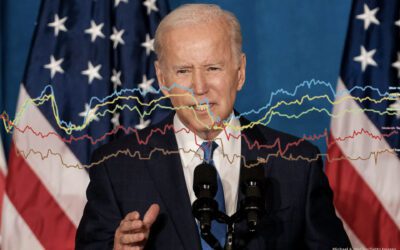The Republican assault on the budget is starting to lose the country – just as they unveil the scale of their cuts and the specific targets. And this survey conducted by Democracy Corps shows how Democrats and progressives can best frame their budget message, link it to the economy, and put the Republicans on the defensive.[1]
The Republicans do not go into this battle protected by any honeymoon with voters. In our congressional ballot, Democrats have closed the margin to within 2-points – a 6-point gain since November; Republican incumbents already trail in the seats won by Obama. Just 40 percent of presidential voters approve of the new Republicans in Congress, which drops to just over a third among independents.
On that critical battleground, the Republicans are losing the intensity war, with strong disapproval outpacing strong approval by two-to-one. Still, Democrats are struggling on the economy, jobs and spending. Voters trust the Republicans more on handling the economy and jobs and employment (by 5 points) and on making the right choices on deciding how to reduce the federal budget deficit (by 15 points). Democrats have a lot of work to do to get this debate right. But the more Americans hear about Republican plans, the less they like them.
In our first survey in 2011 just one month ago, a full 60 percent of respondents supported the plan to cut $100 billion from the budget, but that support has dropped to just 50 percent with a supposedly less austere $32-billion plan. (The poll was conducted before the Republicans doubled the cuts.) And the more the issue is debated, the more voters pull back from the Republicans’ budget plan. Respondents heard Republican arguments on the compelling need to cut spending that kills jobs, but as respondents heard more about the actual cuts, the Democratic arguments, and reassurances on spending, almost a quarter pulled back from the budget plan. Voters are paying a lot of attention to how these cuts impact them and the country. This debate produces important potential shifts among swing voters–”independents, non-college whites, seniors and suburban voters. We also saw dramatic shifts among the new Democratic base of unmarried women and younger voters. These are people who will be hit hardest by these cuts, which will erode support for families and communities, which will have to pick up the burden by spending out of pocket or losing the programs they rely on most. The key is not just opposition to budget cuts, but credibility building on spending, making an economic argument and identifying the cuts that are most problematic.
[1] This memo is based on a poll conducted by Greenberg Quinlan Rosner for Democracy Corps. The survey was of 1,000 likely 2012 voters conducted February 7-9, 2011. Margin of error: +/-3.1 percentage points unless otherwise noted.




